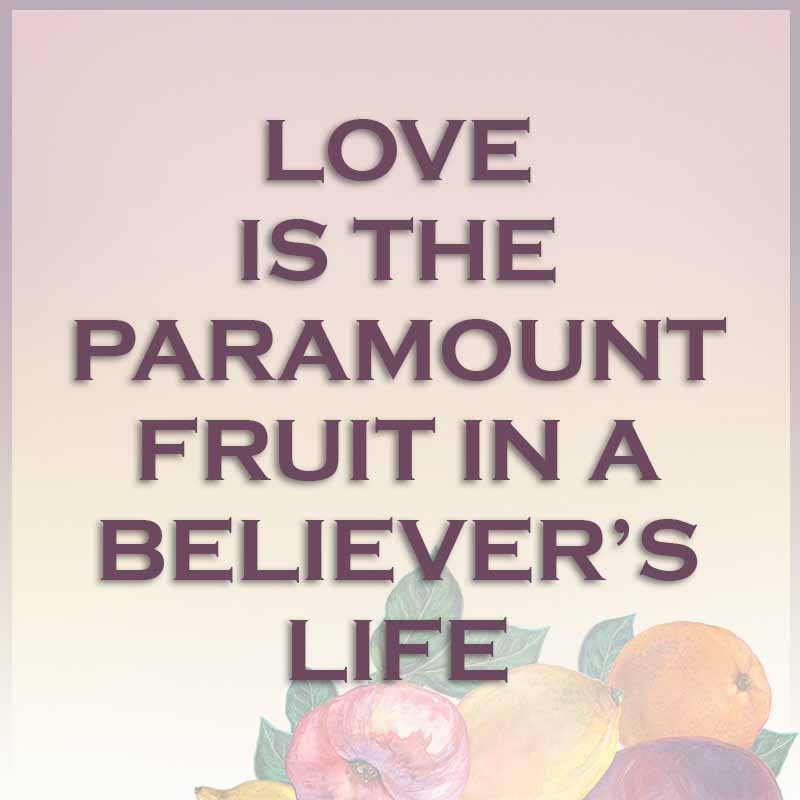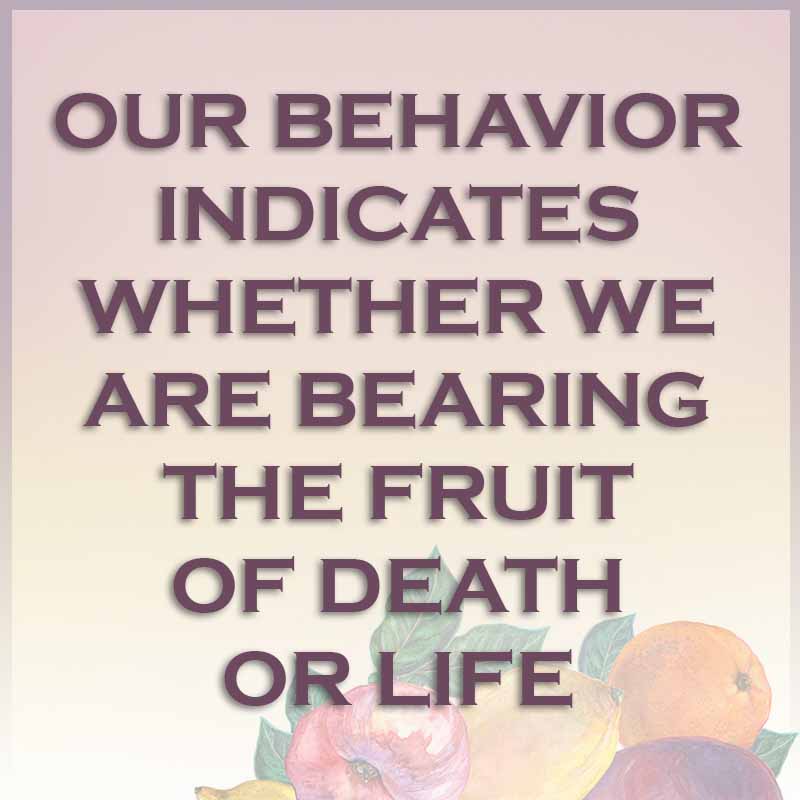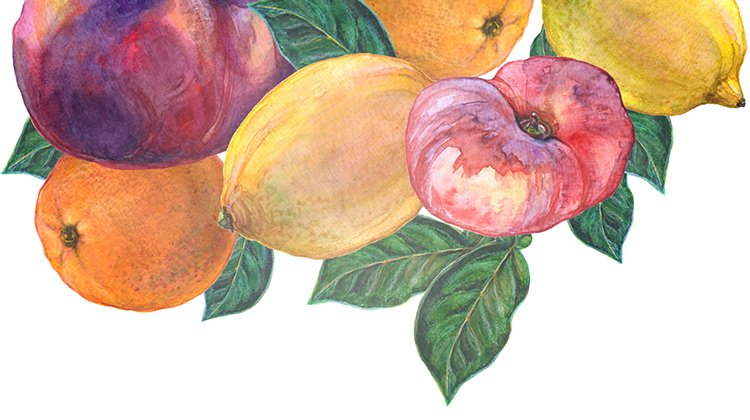When we talk about the fruit of the Spirit, Galatians 5:22-23 immediately springs to mind for most Christians. But did you know that the Old Testament talks about the concept of fruitfulness more than one hundred times? Or that 24 of the 27 books in the New Testament talk about what it means to be a fruit-bearing Christian? Anything important enough for God to mention over and over is something that deserves our attention.
What Is Spiritual Fruit?
What Does the Bible Say About the Fruit of the Spirit?
What Does the Fruit of the Spirit Say About Us as Christians?
How Can I Develop the Fruit of the Spirit?
What Is Spiritual Fruit?
| Fruit (alternative translations) | Description | Christ's Standard |
| Love (unselfish concern for others or charity) | The greatest of all virtues (1 Corinthians 13:13), love is the power that moves us to respond to another’s needs without expectation of reward. | John 13:12-17; 15:12 Romans 5:8 Ephesians 5:2 |
| Joy (happiness) | An inward hope and exuberance despite outward circumstances. Joy differs from happiness, which relies on favorable circumstances. | John 15:11; 16:20-22 Philippians 4:4 |
| Peace (inner peace or peacefulness) | Both a supernatural calm amid chaos and the ability to bring harmony to divided factions. | John 14:27 Hebrews 12:14 |
| Longsuffering (forbearance or patience*) | The quiet willingness to accept irritating or painful situations. | Luke 23:34 Colossians 3:12 |
| Kindness (sweetness) | Generosity and consideration toward others. | Ephesians 4:32 Titus 3:4 |
| Goodness (generosity, benevolence, mildness) | Moral excellence. | Galatians 6:10 Acts 10:38 |
| Faithfulness (good faith) | Enduring loyalty and trustworthiness. | Romans 3:3-4 1 Corinthians 1:9 2 Corinthians 1:18 |
| Gentleness (meekness, humility) | The power to control your reactions to difficult people and situations. It should not be confused with weakness. | Matthew 11:29 |
| Self-control (temperance, endurance, self-restraint) | The ability to restrain inappropriate passions and appetites. | Matthew 26:53 1 Corinthians 9:25 |
* The Amplified Bible explains that patience is “not the ability to wait, but how we act while waiting.”
What Does the Bible Say About the Fruit of the Spirit?
So what exactly is the fruit of the Spirit? Just as a tree is known by its fruit, so spiritual fruit manifests the Holy Spirit’s work in God’s people through the refinement of their character. A person who lives a life led by the Spirit radiates love, joy, peace, patience, kindness, goodness, faithfulness, gentleness, and self-control.
The word “fruit” in Galatians 5 sets up a series of metaphors that extend throughout Scripture. God the Father is the gardener (John 15:1) who enables His people to establish their roots in Christ (Colossians 2:7; Ephesians 3:17). With this firm foundation, Christians abide in the Lord like vines (John 15:4), and the Holy Spirit enables us to produce fruit (Ephesians 5:9). As a result, we will “be like a tree planted by the rivers of water, that brings forth its fruit in its season, whose leaf also shall not wither; and whatever [we do] shall prosper” (Psalm 1:3).
Calling these Spirit-produced characteristics “fruit” indicates beauty, spontaneity, quietness, and growth rather than effort, labor, strain, and toil. Scripture’s use of the word “fruit” instead of “fruits” suggests unity and coherence in the outworking of these virtues.
We can think of the first three fruits as upward. They describe our personal experience with God, and love fills the canvas of our life before the other parts of the picture can be added. When a lawyer asked Jesus, “Which is the greatest commandment?” Jesus told him, “You shall love the Lord your God… and you shall love your neighbor” (Matthew 22:35-39). According to Jesus, love is the paramount fruit in a believer’s life. Once the Spirit plants love in our heart, we gain the ability to cultivate joy and peace no matter our circumstances (John 16:22, 33). If the Holy Spirit fills us, love, joy, and peace will characterize our time with God.

Let’s face it—relationships are trying, and tempers can grow short. But the temperament produced by God’s Spirit is long, kind, and good. Patience, kindness, and goodness are the outward fruit of the Spirit that significantly influence our relationships with others. John Wesley was said to be one of the nicest men who ever lived, and he followed this motto: “Do all the good you can by all the means you can in all the places you can at all the times you can to all the people you can as long as ever you can.” That’s a great description of how a Spirit-controlled, Spirit-filled person treats others.
The final three expressions of spiritual fruit affect our personal development. When the Holy Spirit controls us, we become trustworthy, humble, and self-disciplined. Have you taken hold of your life by the power of the Holy Spirit? Or is the enemy of your soul constantly beating you down in the same areas because you lack the discipline that the Holy Spirit wants to develop within you? It is not enough for Christians to put off the works of the flesh (Galatians 5:19-21). We cultivate a vibrant, holy inner self by yielding ourselves to the Holy Spirit’s ministry.
What Does the Fruit of the Spirit Say About Us as Christians?
Producing the fruit of the Spirit is not optional. Jesus instructs us to bear “fruit,” “more fruit,” and “much fruit” (John 15:2, 5). The apostle Paul calls us to propagate the fruit of holiness (Romans 6:22), “being filled with the fruit of righteousness, which are by Jesus Christ, to the glory and praise of God” (Philippians 1:11). As God’s children, Paul says we are to be “fruitful in every good work and increasing in the knowledge of God” (Colossians 1:10). Finally, Psalm 92:14 tells us that Christians will bear fruit in their old age, stay fresh, and flourish.
If a person has fruit in their life, they are a Christian. Jesus said, “Either make the tree good and its fruit good, or else make the tree bad and its fruit bad; for a tree is known by its fruit” (Matthew 12:33). Anyone who claims to be a Christian but does not have fruit is like Judas who professed to be a Christian but did not possess eternal life. In the book of Acts, Luke says that Judas went “to his own place” (Acts 1:25). He was separated from fellowship with the Church and God Himself because the fruit of his actions revealed that he was not one of God’s people. It is impossible to be a Christian and not have fruit.
Occasionally, someone will ask me this question: “I know a person who claims to be a Christian, but they live their life like anyone else. Their life hasn’t changed at all. Do you think they’re really a Christian?” My answer is that it’s not for me to judge whether anyone is a Christian or not. But I can say what Jesus said, that we can know people by their fruit. In the long run, a person’s life will reveal who they are on the inside.
Salvation does not reform our natural self; it transforms us by giving us new life. If Jesus Christ comes to dwell in a life where He did not live previously, there will be a difference in that life, which Scripture calls “the fruit of the Spirit.”
How Can I Develop the Fruit of the Spirit?
If I could summarize the concept of fruitfulness, I would say that it is anything we do that honors and glorifies the Father. Practically speaking, bearing spiritual fruit can be broken down into five aspects of life.
- The fruit of the Spirit defines our character. As God’s children, others should be able to describe us according to the nine-fold fruit of the Spirit. Are we loving? Patient? Joyful? Good and kind? Is the bounty of our spiritual harvest increasing or decreasing?
- The fruit of the Spirit describes our conduct. When talking about being enslaved to sin, the apostle Paul asked, “What fruit did you have then in the things of which you are now ashamed? For the end of those things is death” (Romans 6:21). Sinful choices lead to rotten fruit and spiritual death. However, righteous conduct leads to “holiness, and the end, everlasting life” (Romans 6:22). So our behavior indicates whether we are bearing the fruit of death or life.
- The fruit of the Spirit determines our contributions. In Paul’s letter to the church in Rome, he referred to their financial gifts for the needy saints in Jerusalem as “fruit” (Romans 15:28). God is a giver—He gave His only begotten Son. And Jesus is a giver—He willingly gave Himself as a sacrifice for sin. When we pass the financial resources God has given us to our local church, a missionary, or a person in need, we bear godly fruit.
- The fruit of the Spirit distinguishes our communication. If Jesus Christ fills our heart, the fruit of His presence will emanate from our mouth in the form of praise. Hebrews 13:15 says, “Therefore by Him let us continually offer the sacrifice of praise to God, that is, the fruit of our lips, giving thanks to His name.” On the other hand, anyone who claims to be a Christian while using language that doesn’t bring praise to Christ has a reason to re-examine their relationship with Him.
- The fruit of the Spirit drives spiritual conversion. According to Proverbs 11:30, “The fruit of the righteous is a tree of life, and he who wins souls is wise.” Put another way, anyone with strong connections to the Vine will make that relationship known to others. Someone once questioned, “If you were arrested on charges of being a Christian, would there be enough evidence to convict you in a court of law?” It’s a good question. How would you answer today?

As God’s people, bearing the fruit of the Spirit is what we do. It is not a suggestion or a good idea. God commands us to “be filled with the Spirit” (Ephesians 5:18). When the Spirit speaks, we move. And when we take a step of obedience toward loving a difficult person or adopting an attitude of peace in a world gone mad, the Holy Spirit gives us the power and energy to do what we could never do on our own.

We know God’s plan is for Christians “to be conformed to the image of His Son, that He might be the firstborn among many brethren” (Romans 8:29). It is not by our effort that we can live supernaturally, following in Jesus’ footsteps. It is only through the work and gifting of the Holy Spirit that the Church—and every Christian—possesses the capability of reflecting the beautiful image of Christ to this fallen world.
